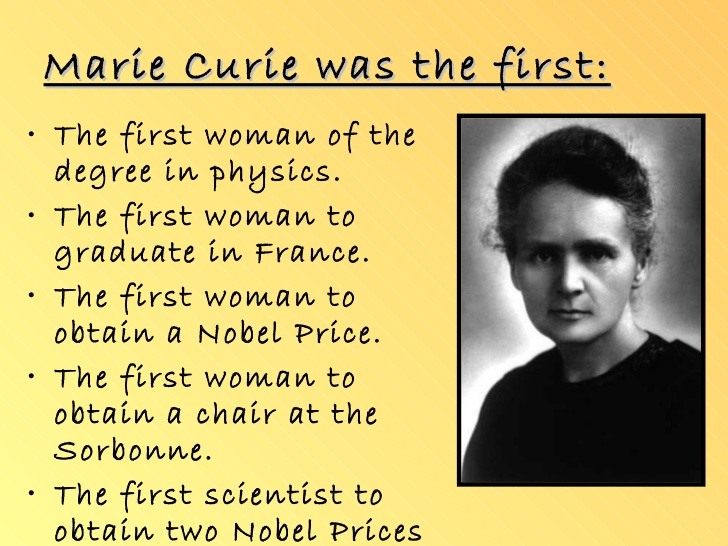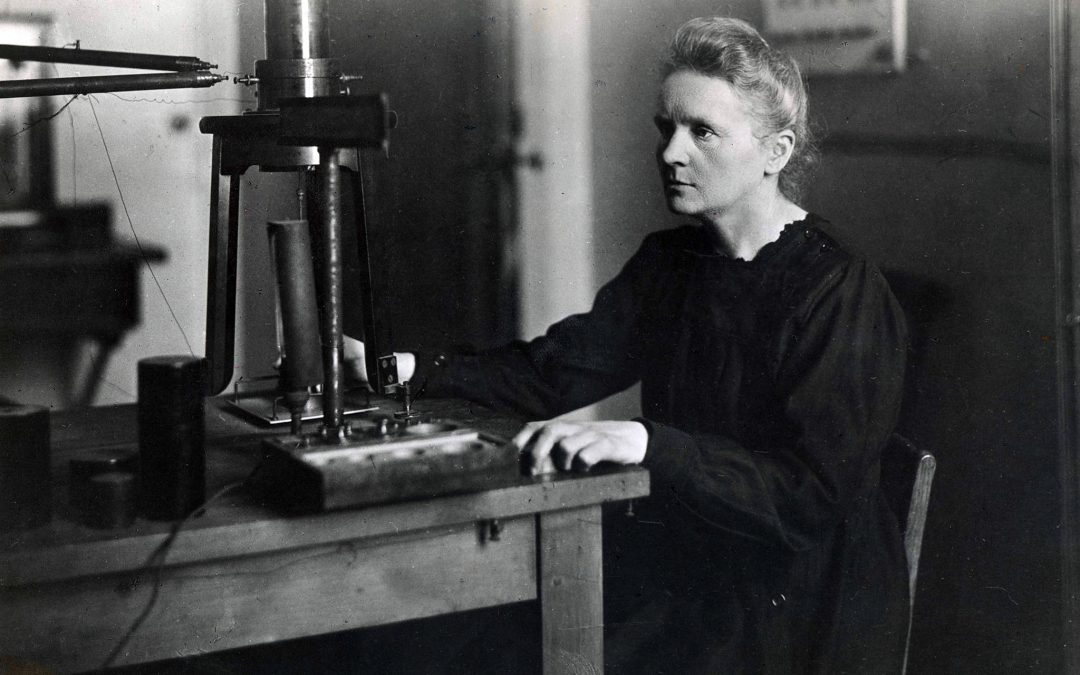The second of our new series of mental toughness role models.
Each features an individual who has clearly and consistently demonstrated the elements of Mental Toughness that we call the 4Cs. Mental Toughness embraces what is commonly known as Resilience and adds the Optimism components of Challenge and Confidence to create a more complete model.
Born Maria Sklodowska on 7 November 1867 in Warsaw, Poland,, Marie Curie achieved iconic status as a remarkable scientist who developed what we now understand as “radioactivity” . She became the first person to achieve a Nobel Prize in two different disciplines for work that has transformed everyone’s lives for evermore. From very humble origins (her family was poor) and with little financial support and resources, Marie and her husband Pierre isolated and identified Polonium and Radium when most of the scientific community didn’t believe in their existence.
Her driver was working for the common good – she developed the first ambulances with x ray capability in WW1.
What is less well understood and no less impressive is that she achieved all of this as a woman when not only were women not expected to work as scientists and raise a family but would commonly be held back from doing so. When invited to speak on their work at the Royal Institution in London, only Pierre was allowed to speak. When the Nobel Prize committee awarded the first Nobel Prize in 1903 they initially awarded it only to her husband. They relented and she became the first woman to receive a Nobel prize. Quite rightly she is regarded as a pioneering feminist precursor.
When we look at the Control elements of Mental Toughness she showed the sense of “can do” believing in her ideas despite widespread opposition in the scientific community. Renowned for her Emotional Control, Einstein remarked that she was probably the only person who could not be corrupted by fame. Curie herself said “Life is not easy for any of us. But what of that? We must have perseverance.”
When we consider Commitment, this is where Curie excelled. Her attitude is succinctly embodied in another of her quotes “I never see what has been done; I only see what remains to be done.”
She clearly had a goal and a belief in it. As importantly she did whatever necessary to achieve that goal. The work was heavy and physically demanding – and involved danger. Pierre and Marie Curie carried out all of the work themselves processing tons of raw material. Working very long hours, they didn’t have a laboratory assistant until 3 years after winning the first Nobel Prize! 
Of course, when we consider Challenge, as a genuine pioneer in her filed she was clearly open to new ideas and to taking risks – and learning from their consequences, good or bad. Marie Curie is famously quoted as saying “First principle: never to let one’s self be beaten down by persons or by events” and “Nothing in this world is to be feared… only understood”. Now is the time to understand more, so that we may fear less”. That’s a wonderfully clear expression of the importance of being open to learning.
All of this was underpinned in her Confidence in her own Abilities. She was able – she was top of her class at school and she entered University in Paris at 15 years of age –being determined not to fall into the only occupations available for professional women at that time – teaching and being a governess. And she clearly understood the importance of this when stating “Life is not easy for any of us. But what of that? We must have perseverance and above all confidence in ourselves. We must believe that we are gifted for something and that this thing must be attained”.
Her Interpersonal Confidence was also strength. She mixed freely with her contemporaries and earned their respect – again when it was unknown for women to offer and express ideas such as hers. She also wrote prolifically.
As in all the case studies, Marie Curie wasn’t perfect although she had few faults. Her singlemindedness led her to take risks. She eventually died from exposure to radiation. To this day her books and notes are locked in a lead case – being highly radioactive.
She seemed to be incredibly self-aware and very reflective. Enabling her to develop a reputation for honesty and generosity. She gave away most of the money she received from the Nobel Prizes and insisted that any prizes be given to good causes.
Her mental toughness enabled her to achieve more than any of her peers. It would be remarkable if it had been a man doing all of this – in what is very much a man’s world. As a woman she had a harder path to tread but dealt with all of that with remarkable poise.
She was not adverse to making impactful political gestures either. In her time Poland didn’t exist, being part of three Empires. She named her first discovery Polonium in support of her dream of a free Polish state.
Our colleague Prof Peter Clough often uses a phrase to describe what mental toughness brings to an individual. He describes it as “being comfortable in your own skin and dealing with what life throws at you and the opportunities that arise”. There may be no better example of that than Marie Curie.
Mental Toughness describes the mind-set that every person adopts in everything they do. It is closely related to qualities such as character, resilience, grit, etc. Mental Toughness is defined as a personality trait which determines in large part how people deal with challenge, opportunity, stressors and pressure …. irrespective of prevailing circumstances.
Finally again I need to own up. My mother, a Pole, perhaps for reasons now very obvious, idolised Marie Curie. I paid little attention to that until recently. Belatedly researching this article was a pleasure and more than a little inspirational.
During the course of that research I came across another fascinating quote “The older one gets, the more one feels that the present must be enjoyed; it is a precious gift, comparable to a state of grace”. It seems she was way ahead of us in understanding Mindfulness too.
And if interested in learning more about assessing and developing Mental Toughness click here and if interested in being a licensed user, contact us.
Feel free to connect with me too on LinkedIn or via doug@aqr.co.uk


